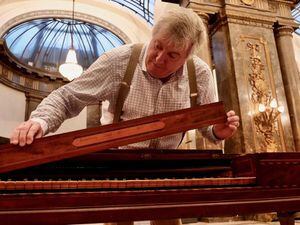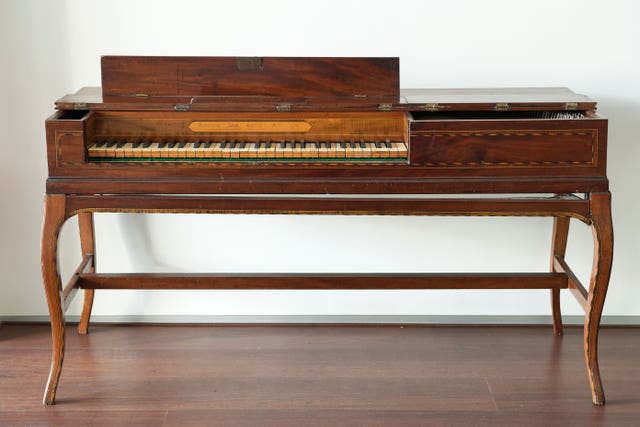First Australian piano returns to UK for restoration
The square piano was the first keyboard instrument to land on Australian soil in 1788.

A historic piano which was the first keyboard instrument on Australian soil has been returned to the UK for critical restoration work.
The square piano was taken to Sydney on board the HMS Sirius as part of the 11 First Fleet ships which sailed from England in 1787 and made landfall in Australia in January 1788.
It was made by London piano maker Frederick Beck and brought to Australia on the fleet’s eight-month journey from Portsmouth. It was eventually donated to Perth’s Edith Cowan University’s (ECU).
The return journey to the UK was much shorter than eight months, taking just 21 hours on an Emirates jet from Perth to London earlier this month.
The First Fleet Piano was accompanied by another five pianos, three of which were produced in the 18th and 19th centuries, the airline said.
The instruments were packed in specially crafted insulated flight cases with sensors to track temperature and movement and loaded in the cargo hold of Emirates’ A380 aircraft from Perth to Dubai.

Once in Dubai, the cases were transferred to a connecting flight to London, which landed on Friday, March 15.
Emirates vice president for cargo commercial, Far East and Australasia, Ravishankar Mirle said: “With the transport of these historic pianos from Edith Cowan University’s collection of rare musical instruments, we have also played a role in a cultural project that connects two nations through music and heritage.”
ECU vice-chancellor Professor Steve Chapman said: “The restoration of the First Fleet Piano has firmly placed Edith Cowan University at the centre of worldwide efforts to create research and education programmes on how to conserve and restore prized historical instruments.”
The First Fleet Piano will undergo extensive restoration work before returning to Australia.





